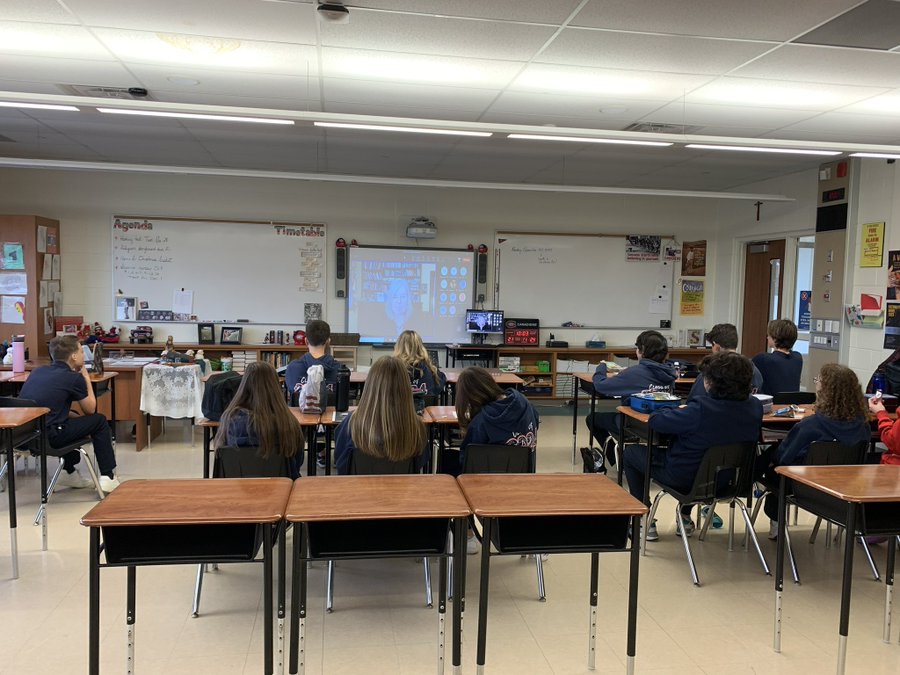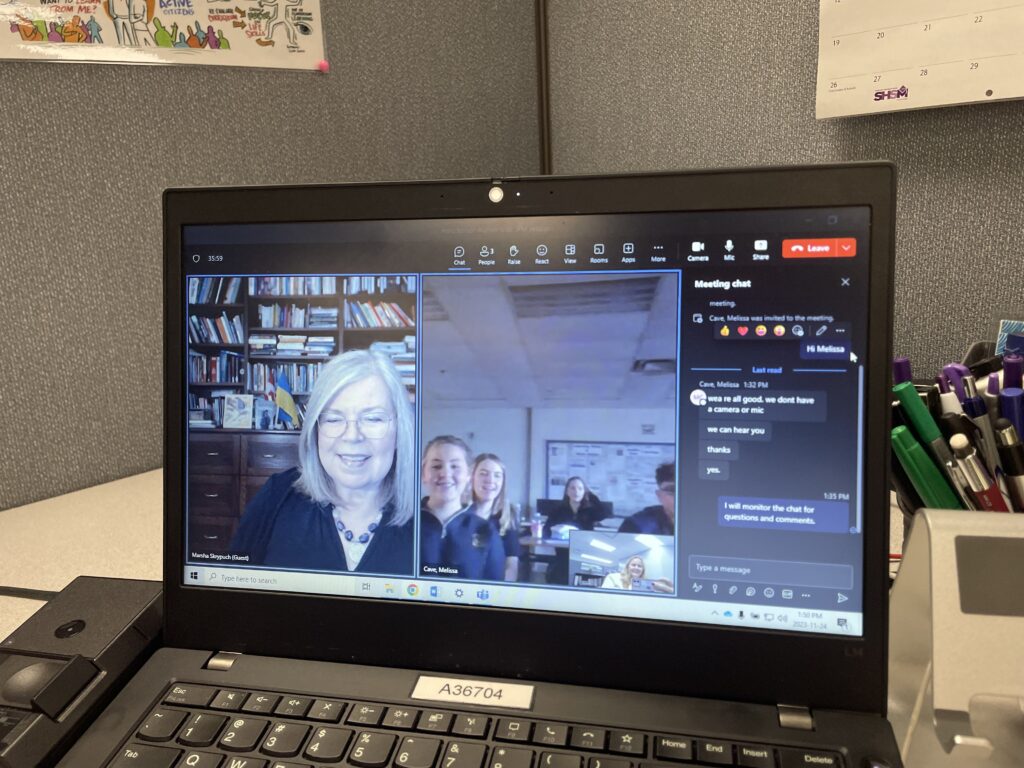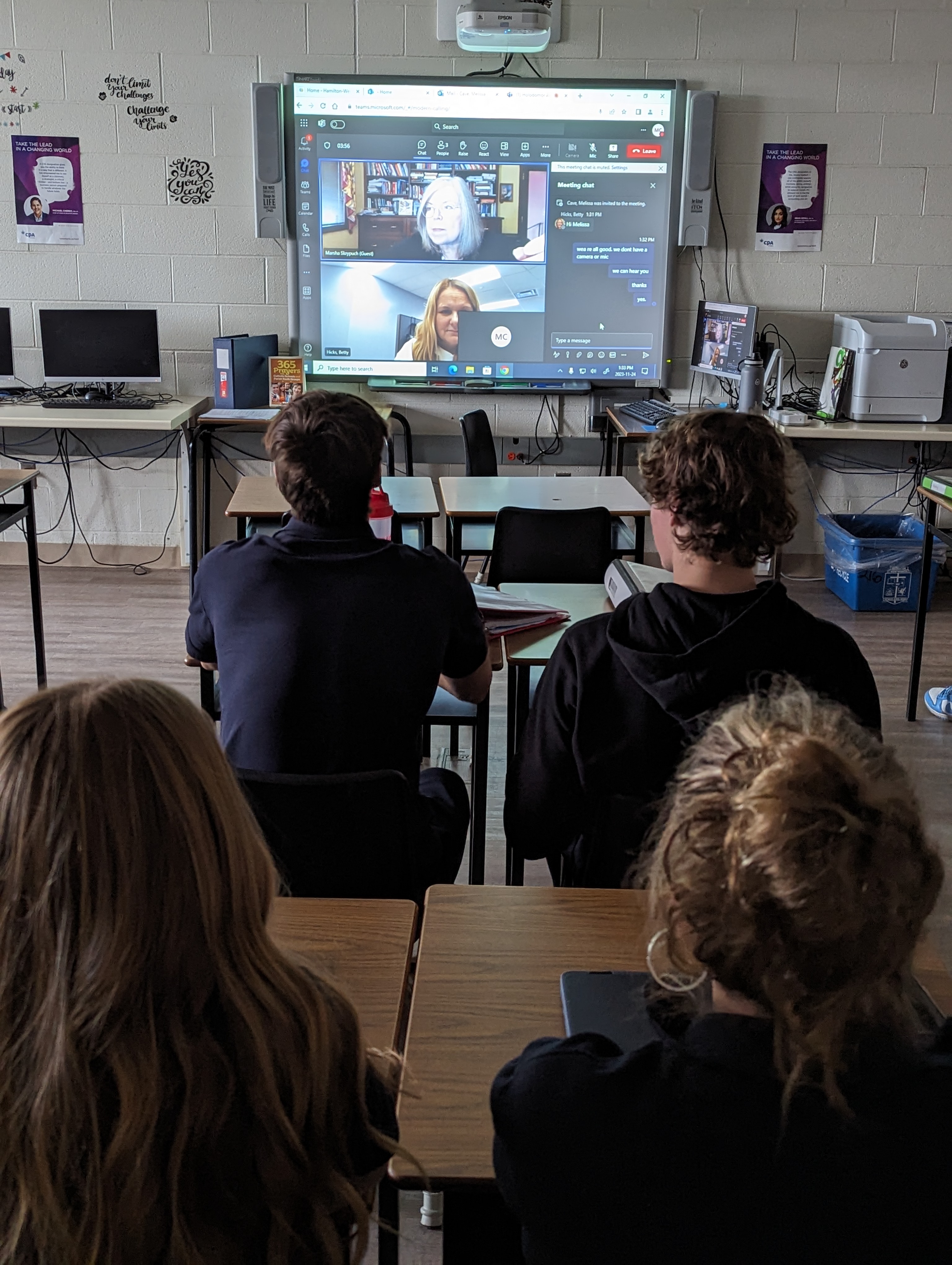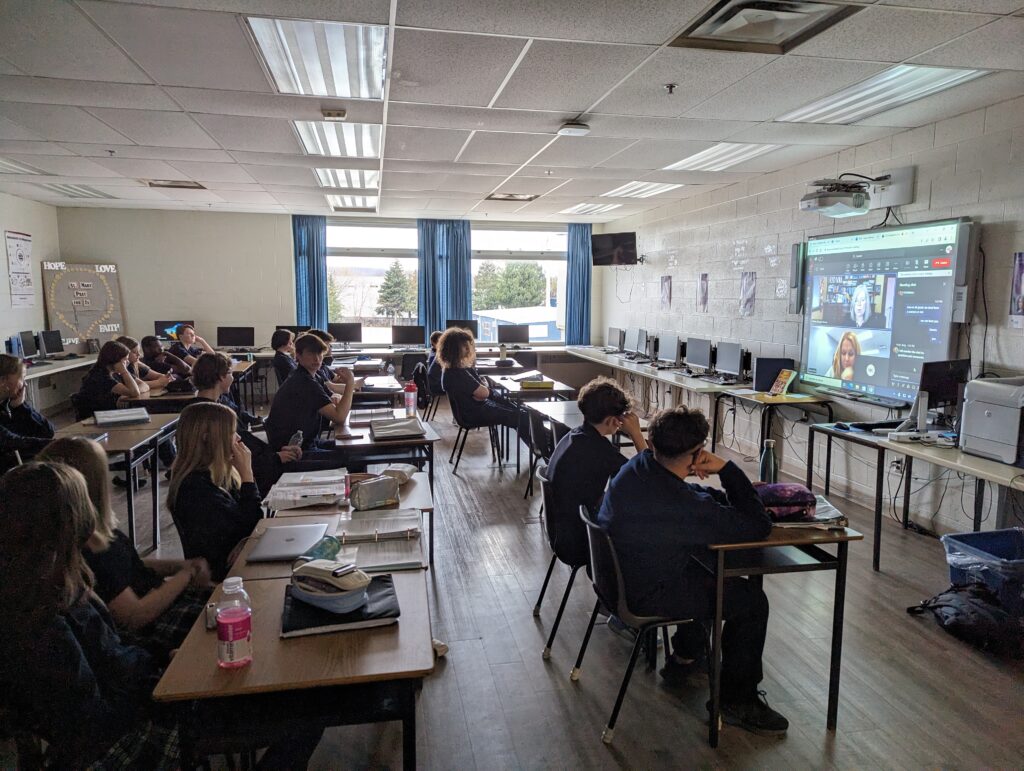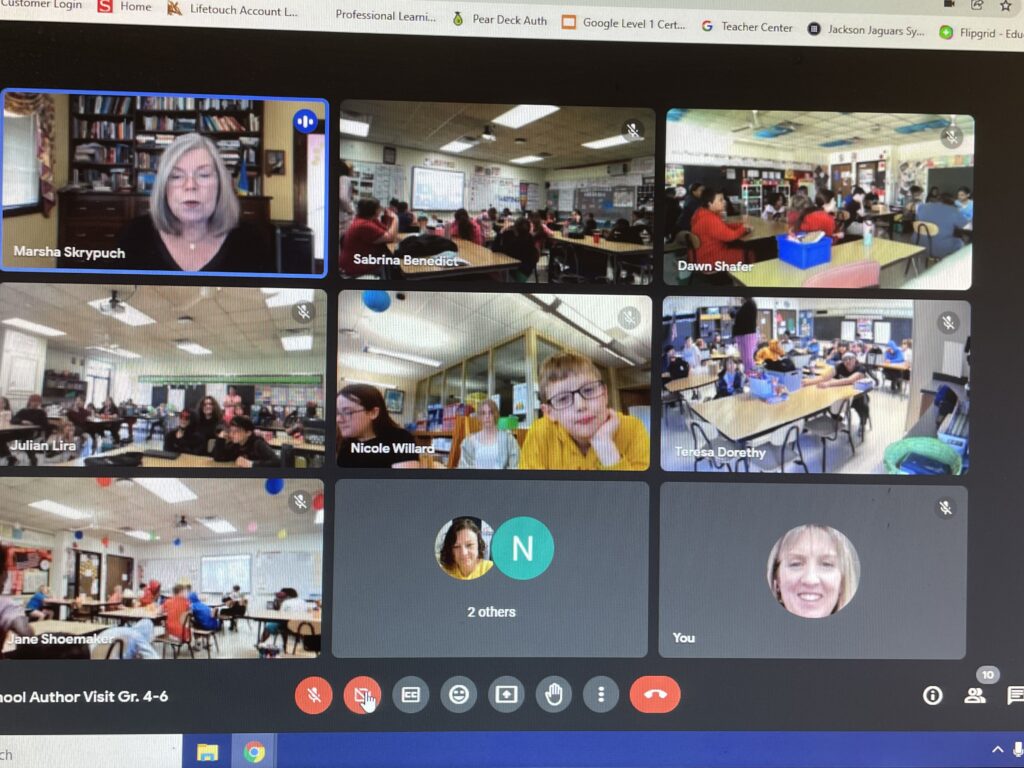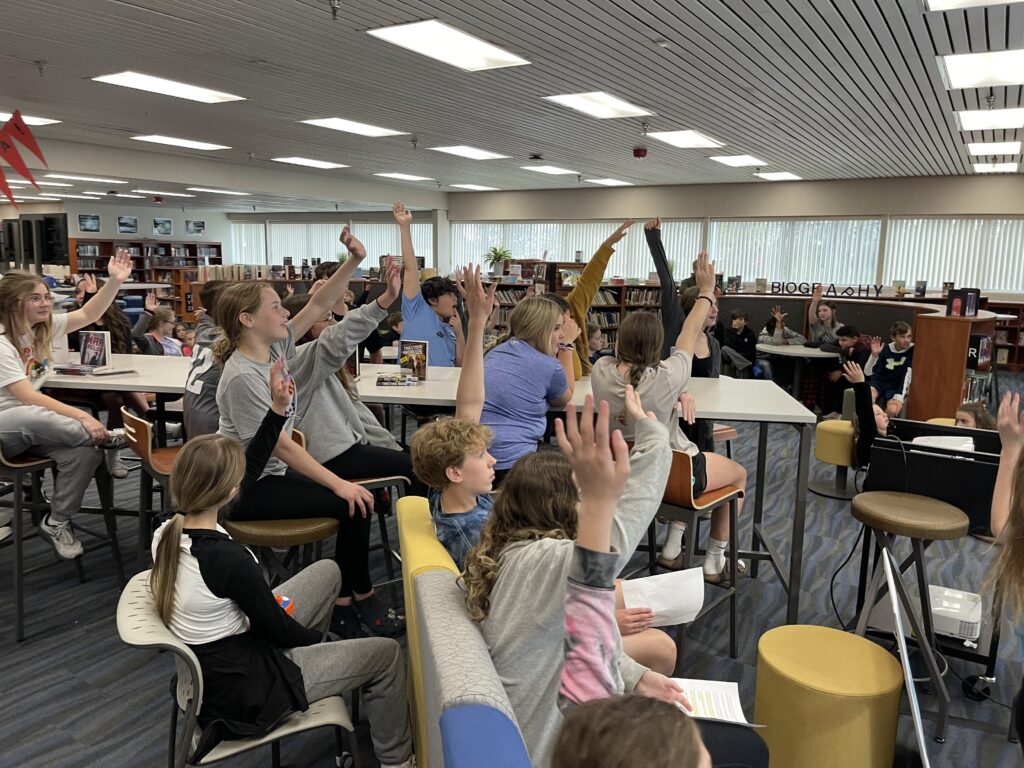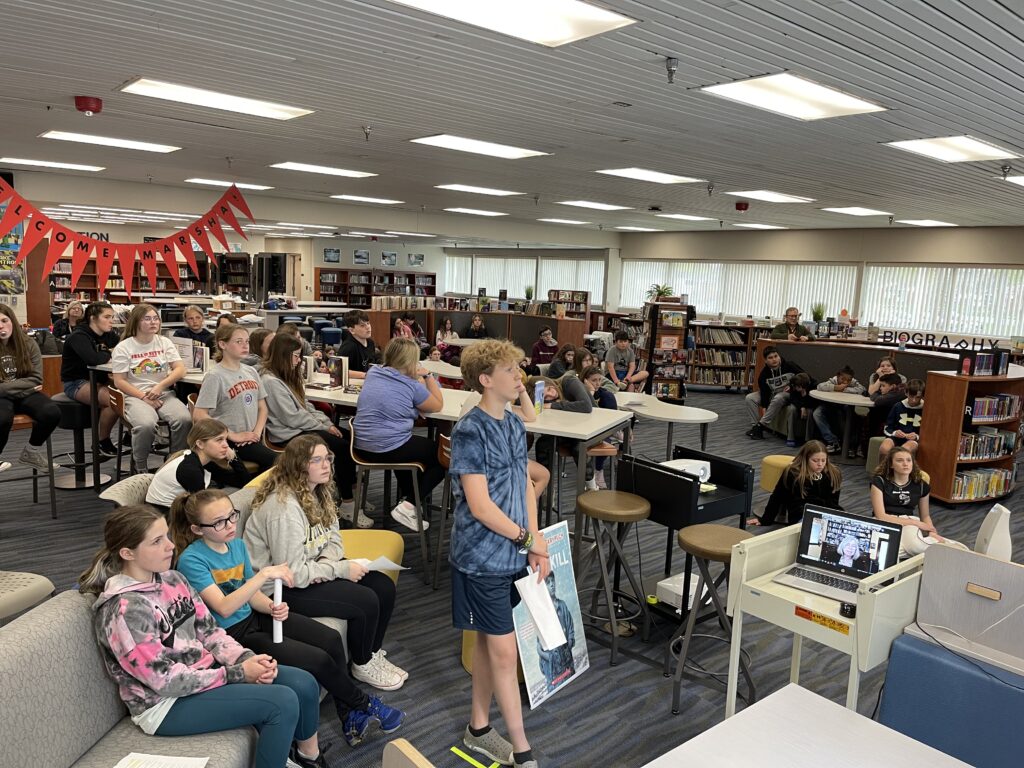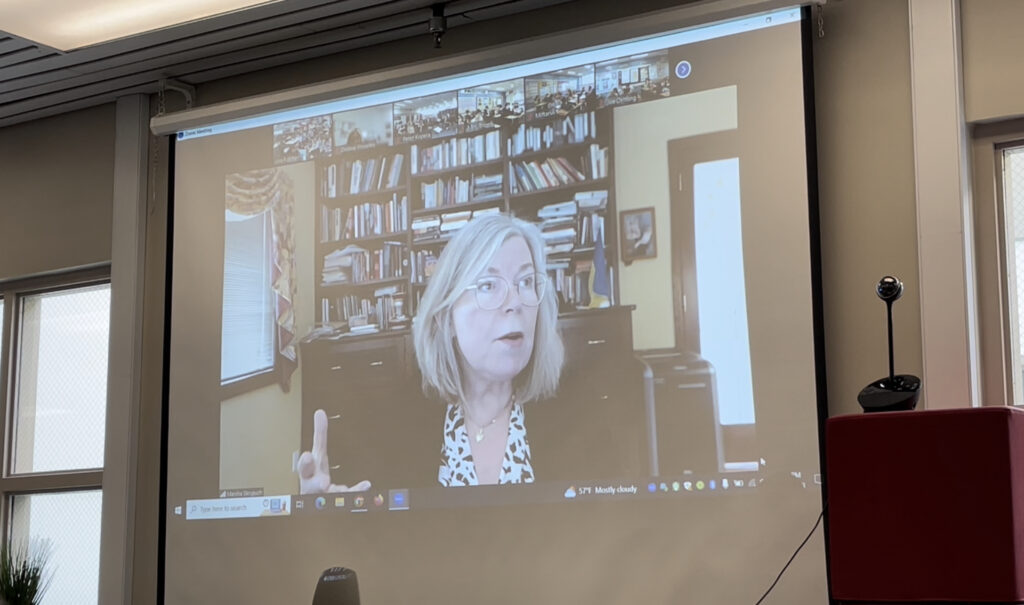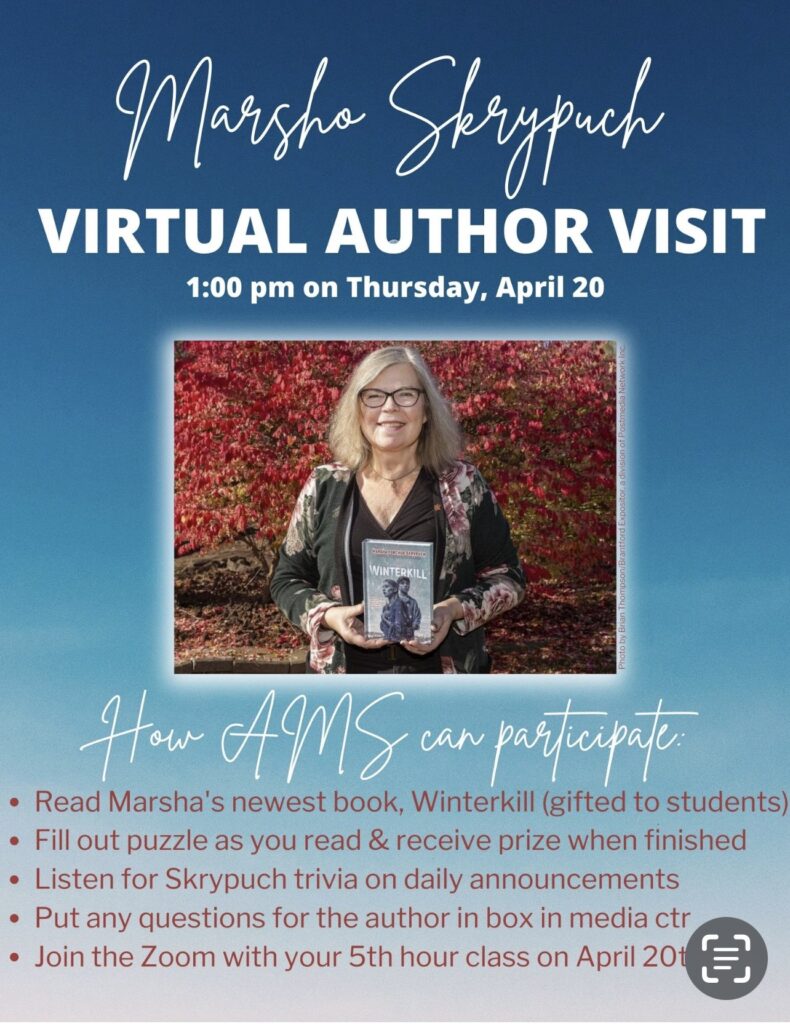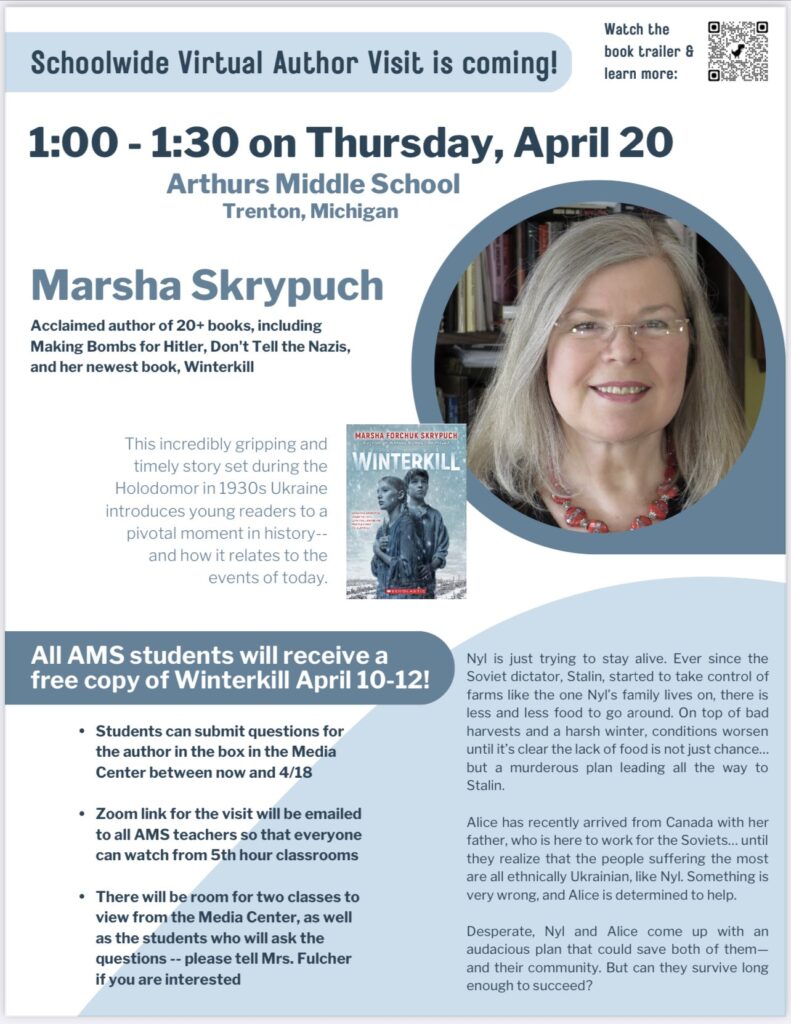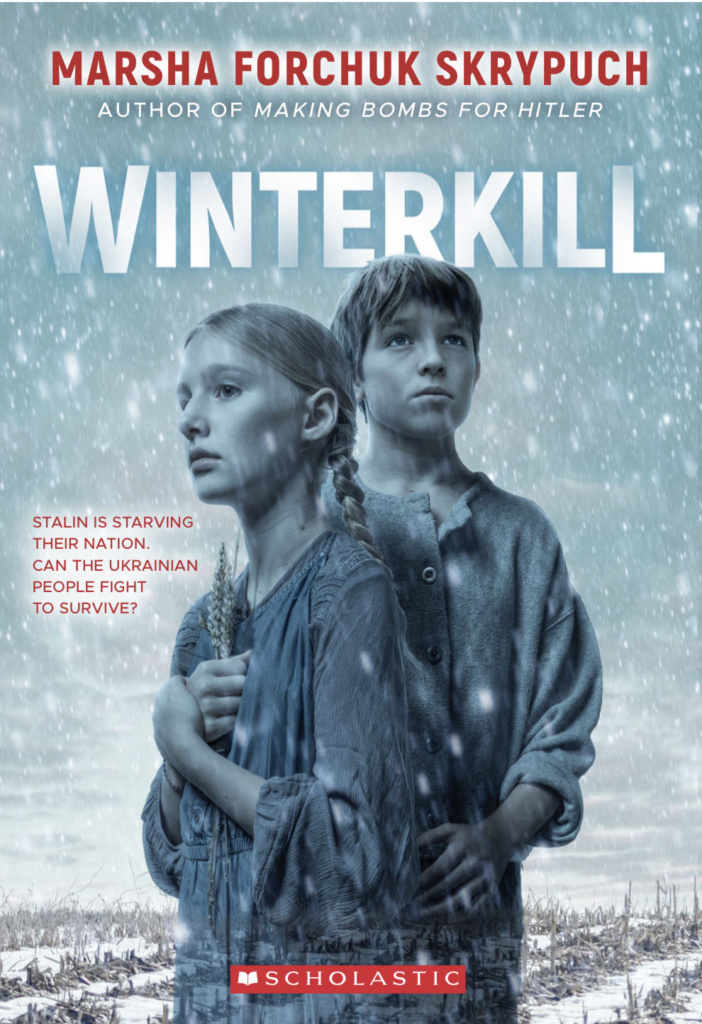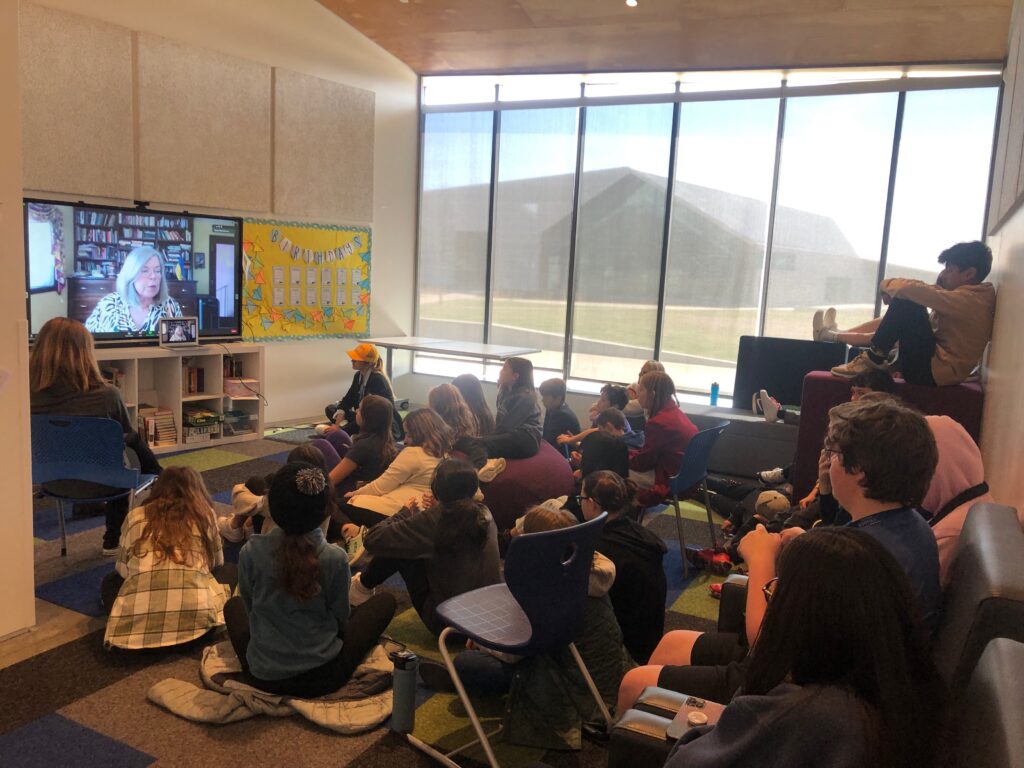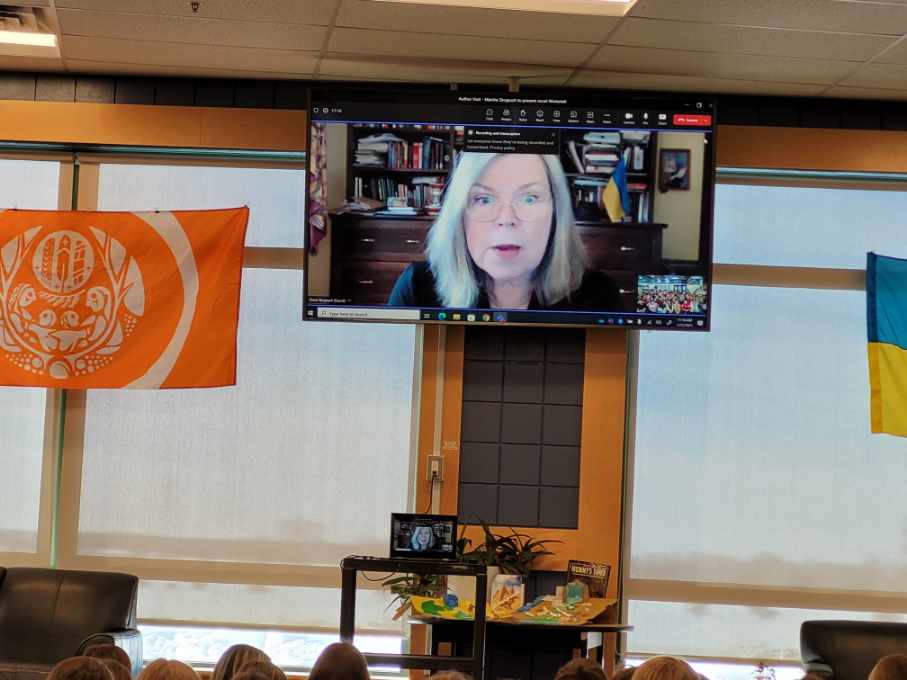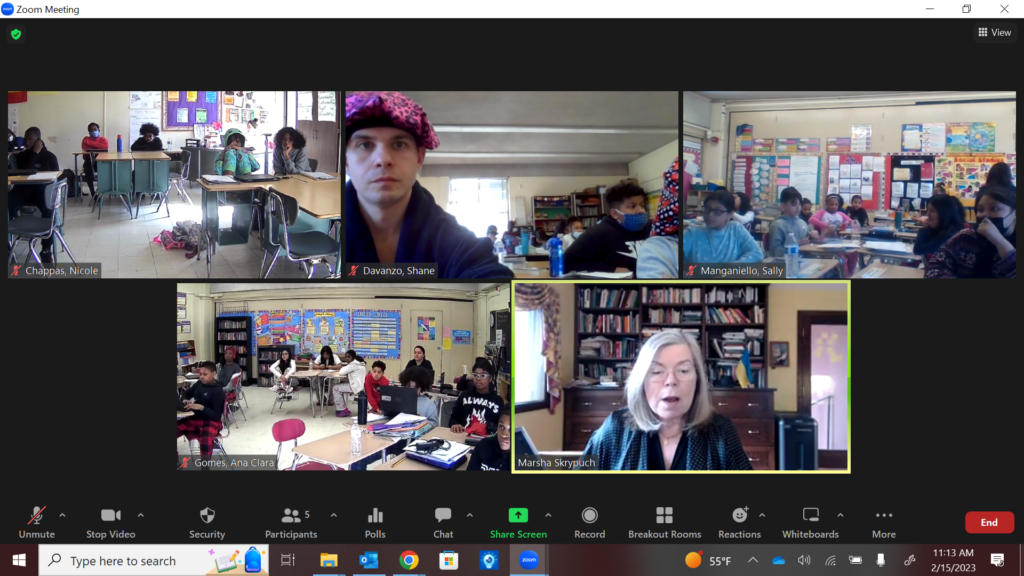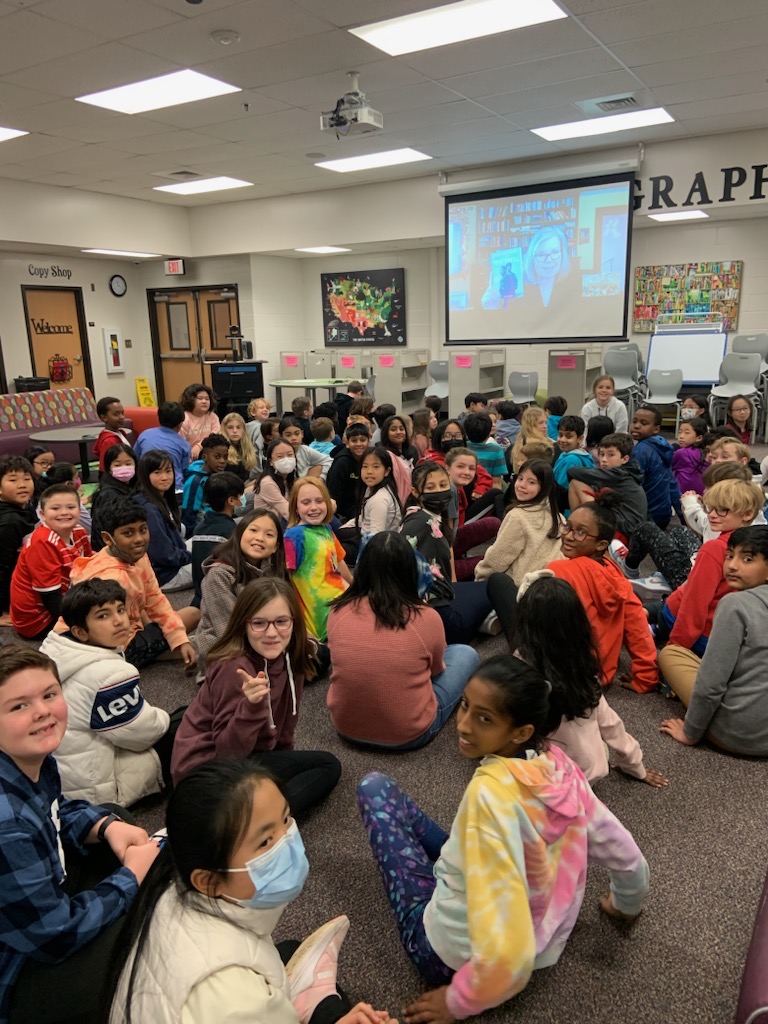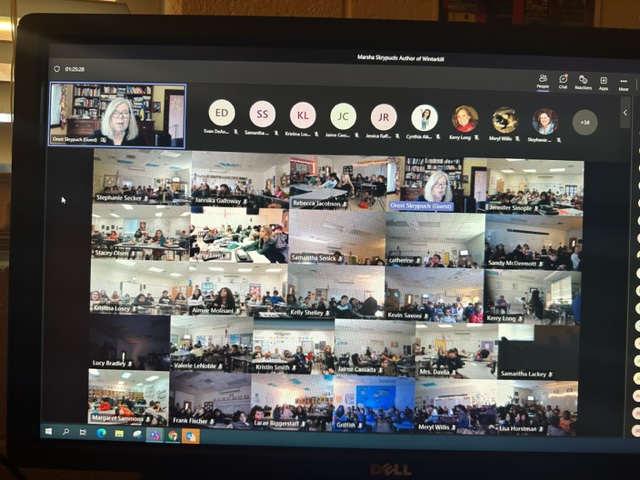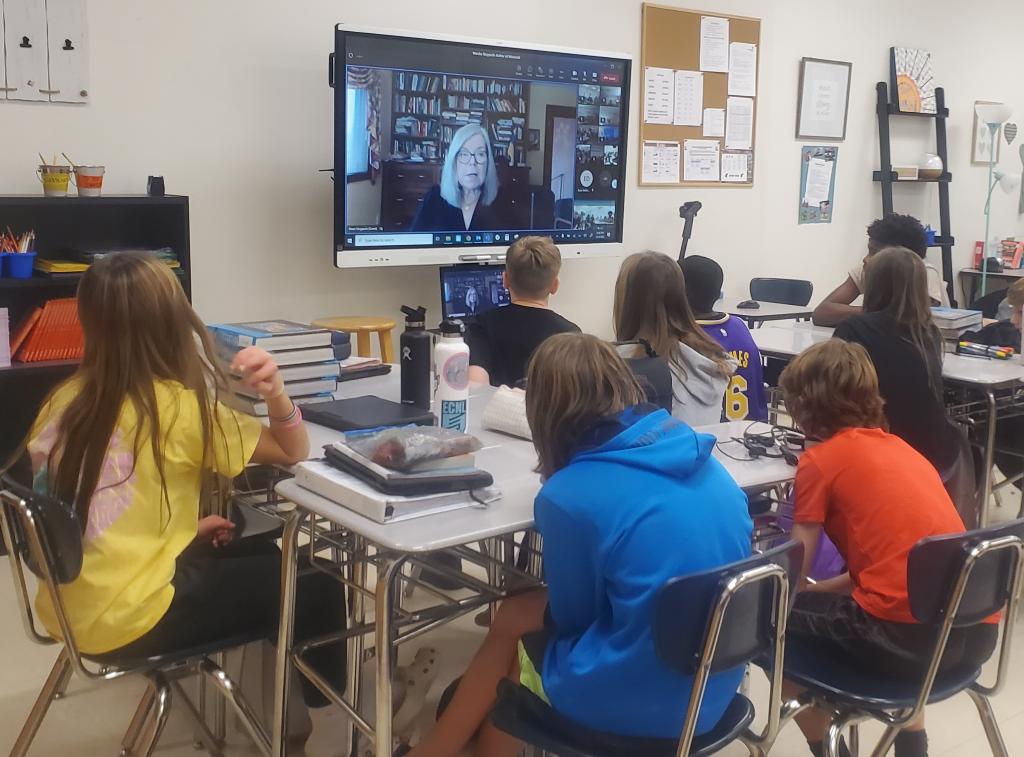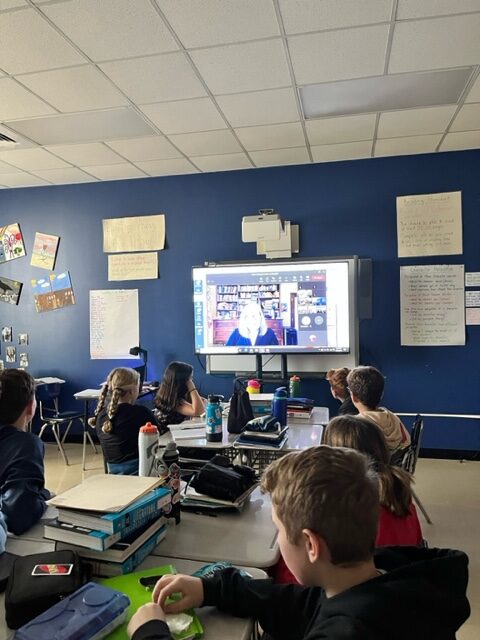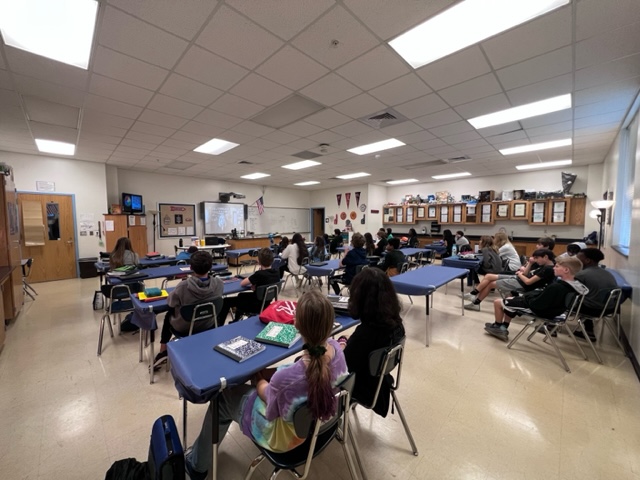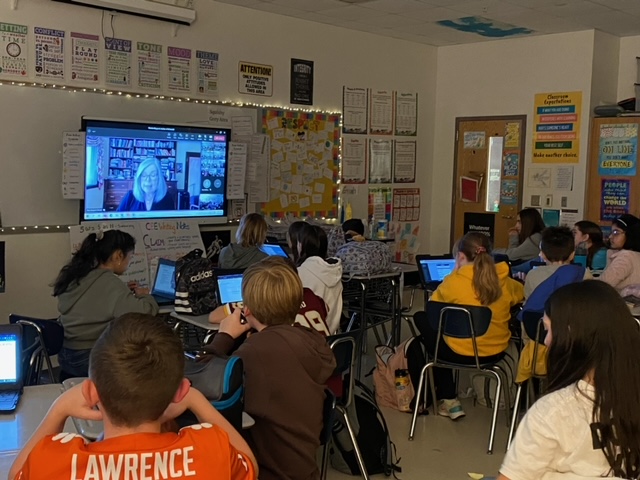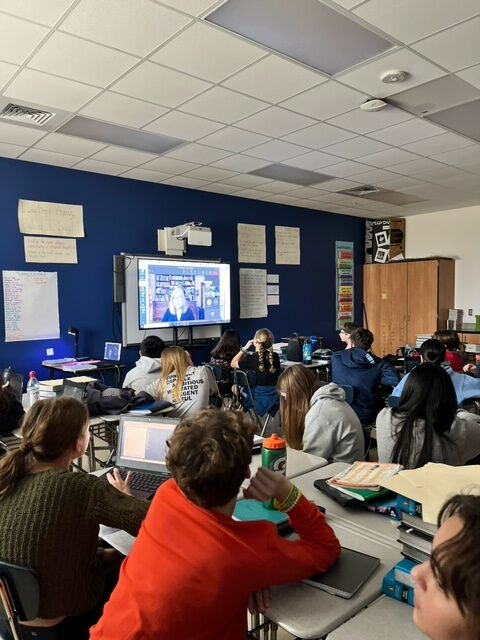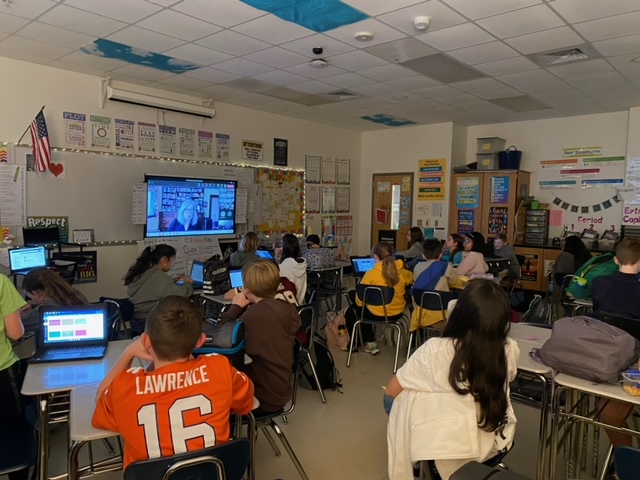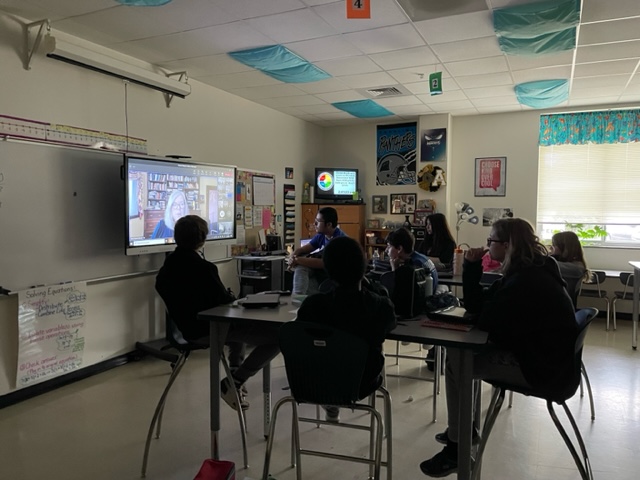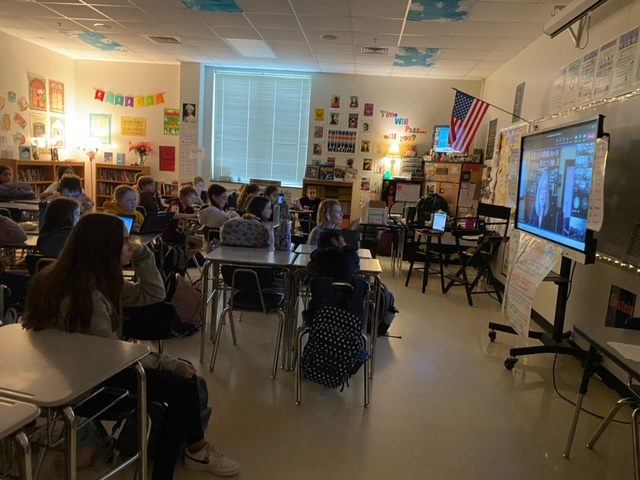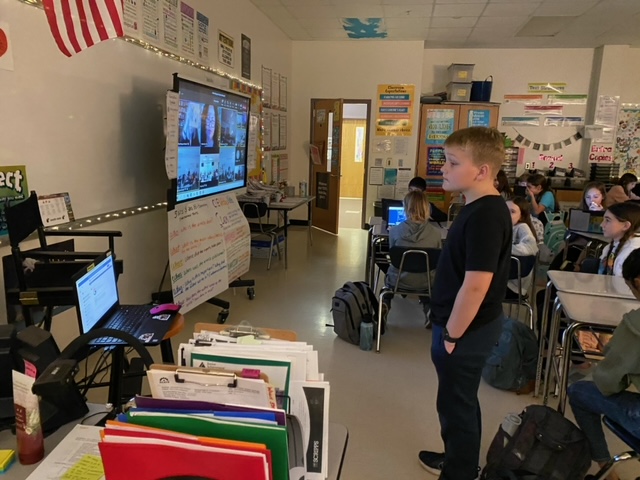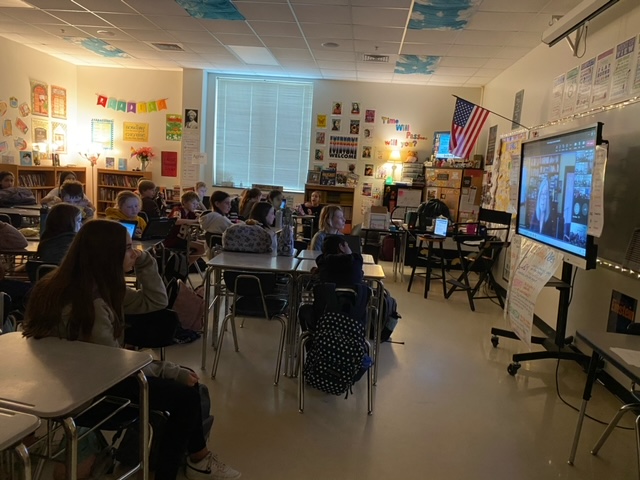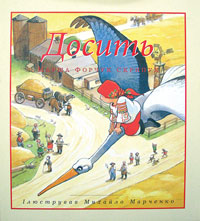
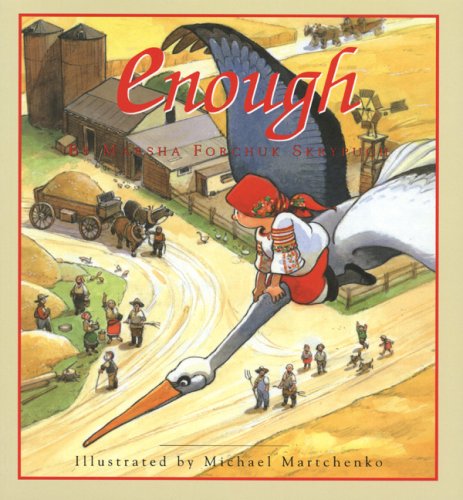
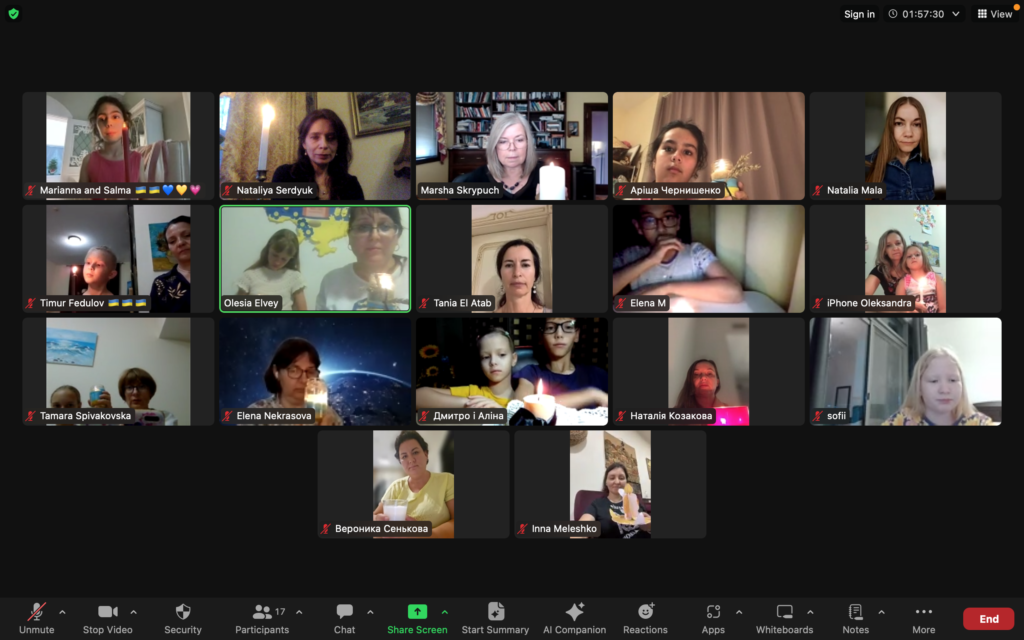
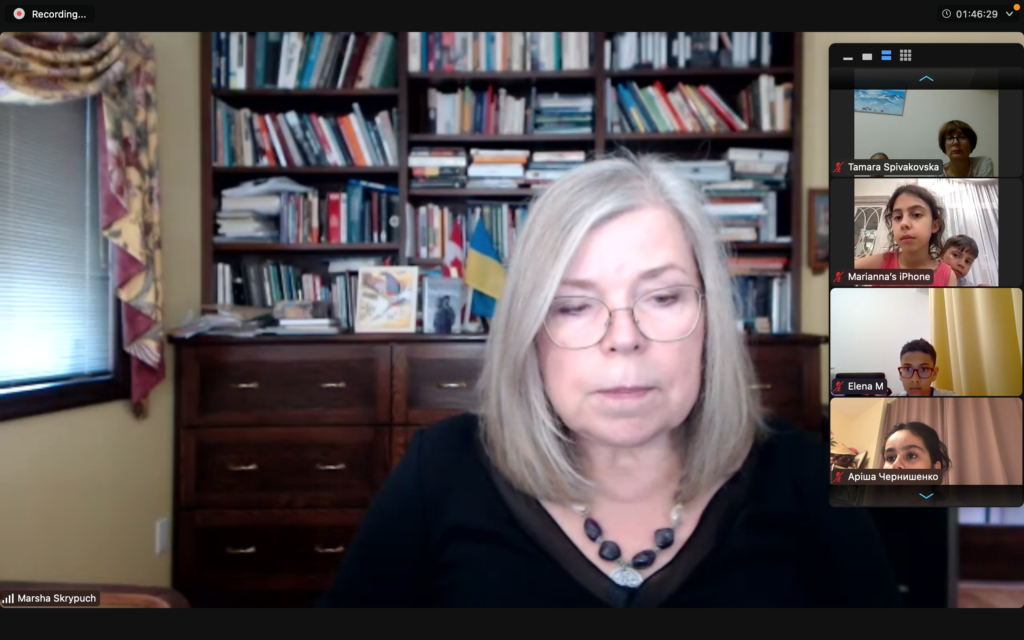
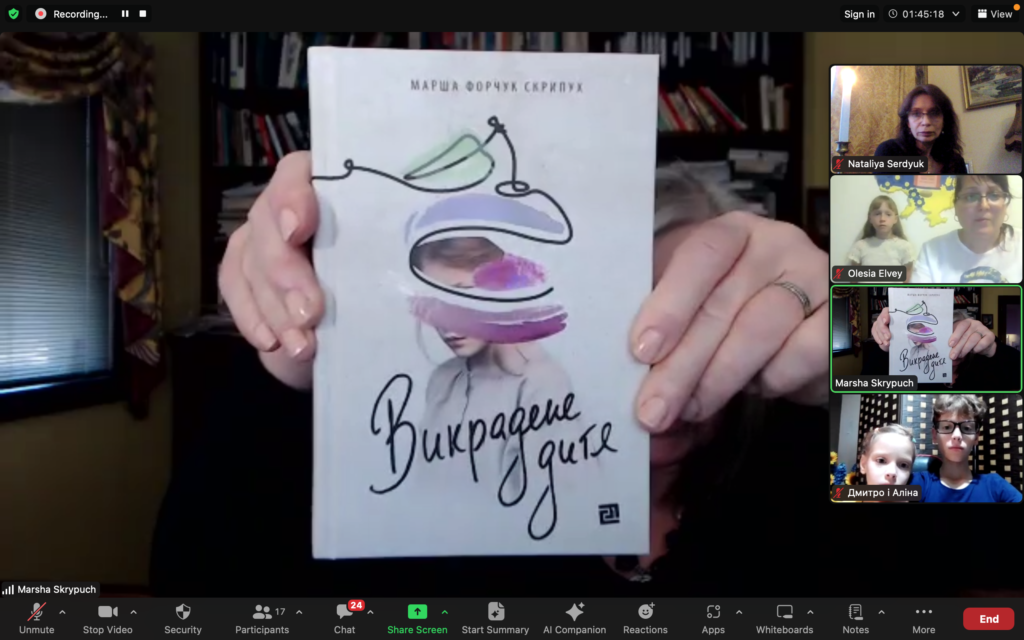
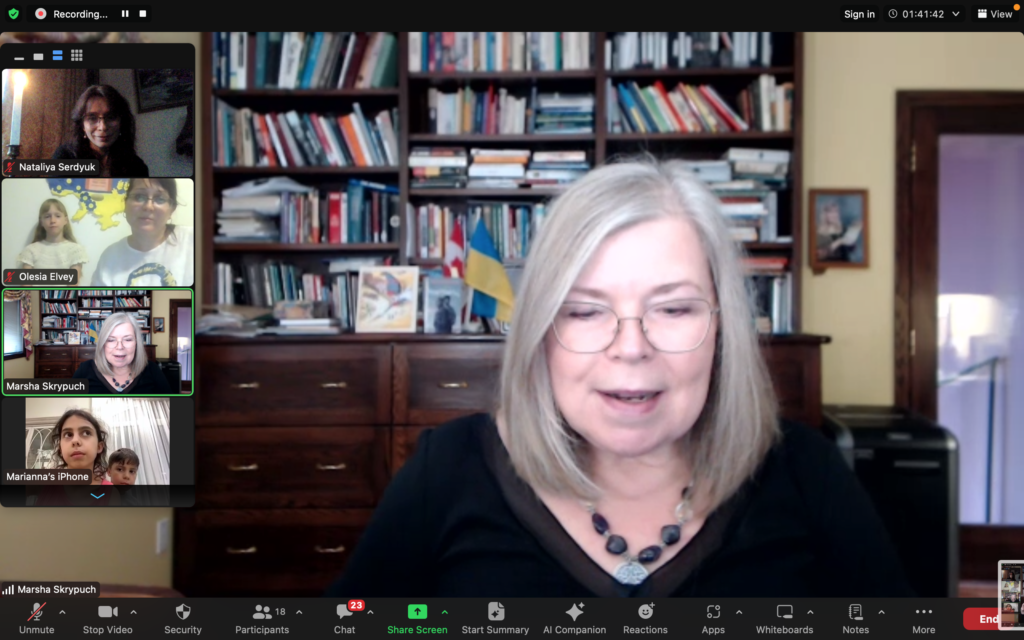
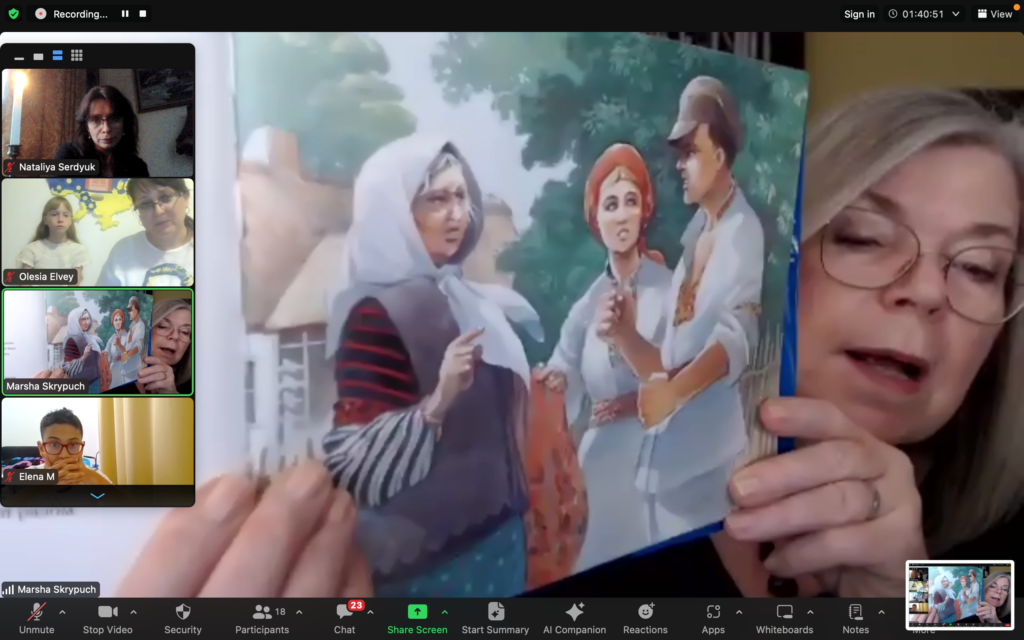
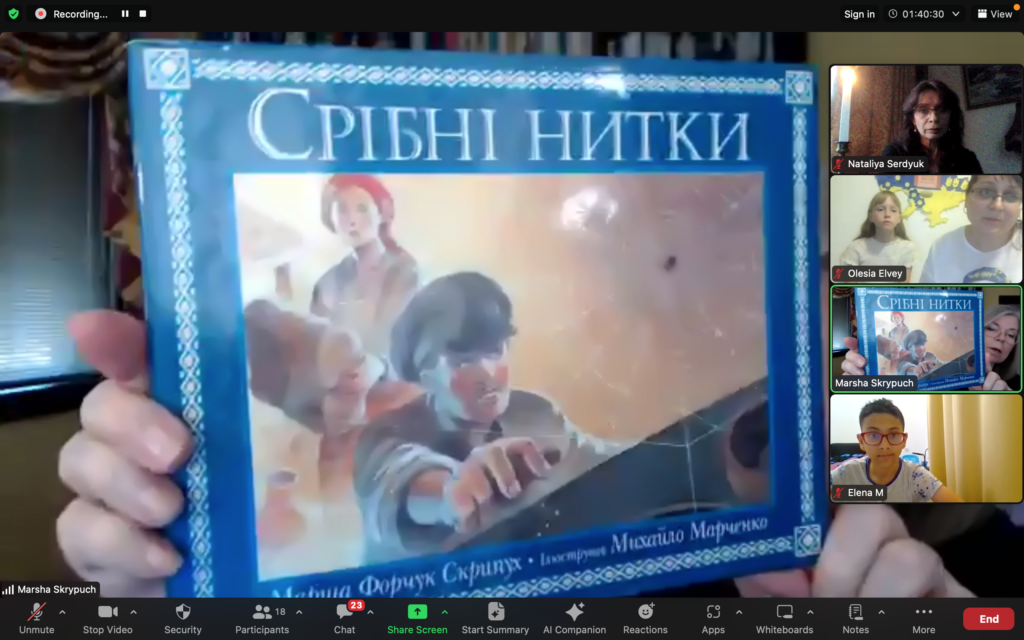
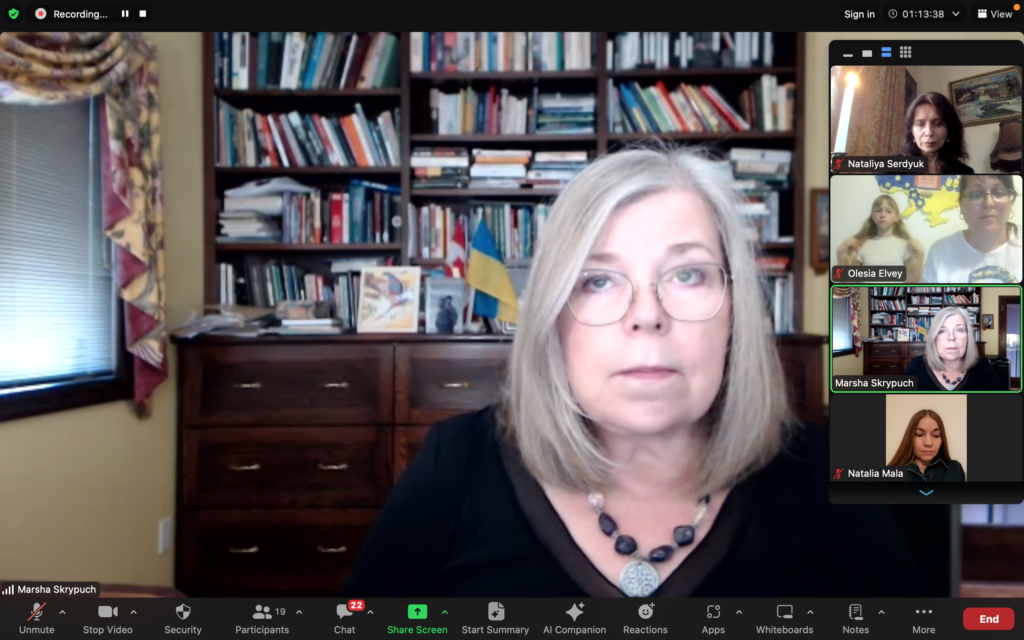
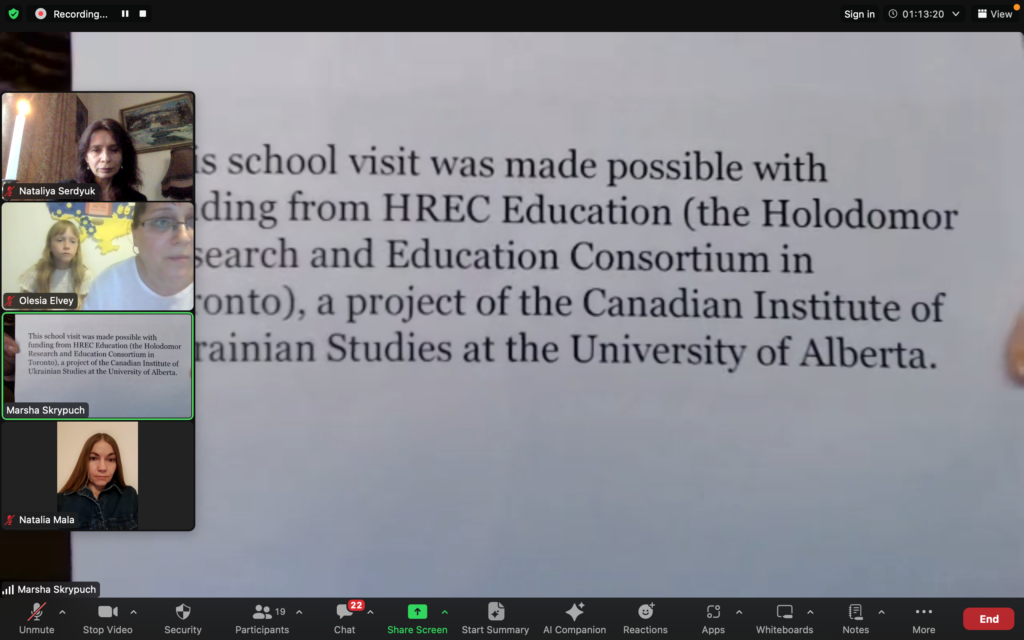
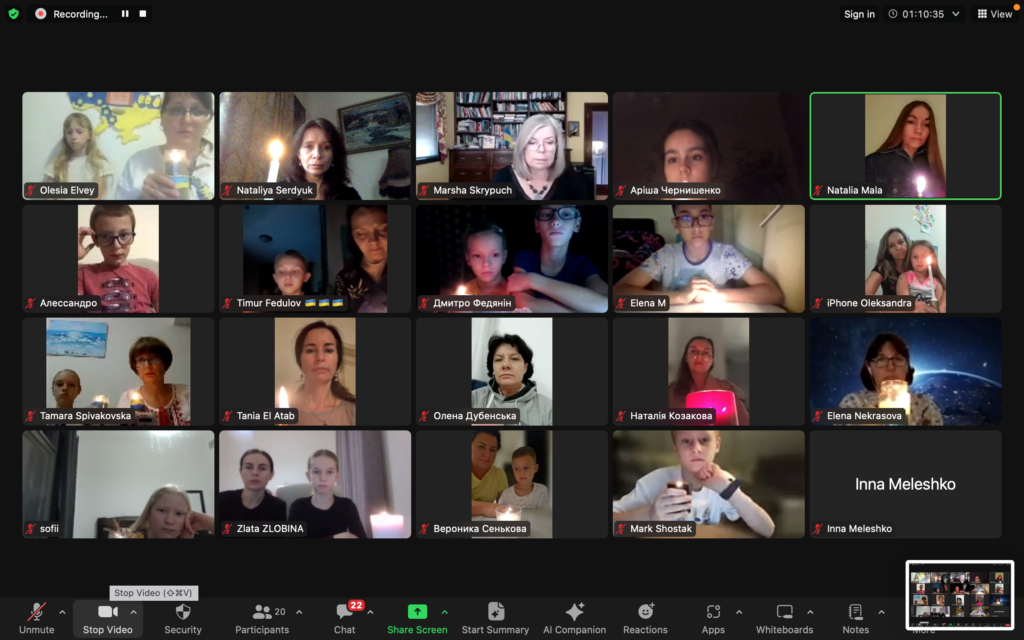
Olesia Elvey, the Ukrainian language and literature teacher at Sophia Ukrainian school in Dubai, contacted me a couple of months ago about the possibility of doing a virtual visit with her students, using my picture book Enough, which is set during the Holodomor, as part of their commemoration on Holodomor Memorial Day, which was yesterday. She also wanted her students to see the lighting of the candle in Kyiv at 4pm Kyiv time. It took a fair bit of coordination with three time zones and several languages for Olesia to arrange this but it all came off beautifully. The students read my works about the Holodomor that were available in Ukrainian, so that was Enough, and The Rings. They asked their questions in English, and their English was perfect. Their perspective was quite interesting. They wanted to know how and why I was so interested in Ukrainian topics, because to them, I was Canadian through and through. I don’t speak Ukrainian and not only was I born in Canada, but so were my parents. They were surprised that I could have such a deep tie with the country, but this is true of many Ukrainians in the diaspora. My heart is solid Ukrainian.
I told them that Ukrainians who were able to find refuge in Canada were like seeds of memory (Mateusz Świetlicki has written a brilliant book on this very topic). Those who stayed were often subjected to gulags, imprisonment, death, re-education, not to mention propaganda and disinformation. Stalin specifically targeted for extinction the storytellers, journalists, artists. How do you tell your stories when you’re dead?
The diaspora had challenges, but nothing like Ukrainians. Memories were shared and recorded and passed down. Memories of WWI, WWII, the Holodomor, as well as Ukrainian pioneer life in Canada, interwar life, DPs, and so on were all preserved. Many of my books are inspired by these experiences. I am deeply moved when Ukrainian read and respond to my books, and when they recognize their own history on the pages.
Here’s a local story about the event.
Here are some of the questions the students asked:
Dmytro and Alina:
.- Are there episodes in your stories (in particular, in the fairy tale “Enough”) that related to the history of your family?
Чи є у Ваших творах (зокрема, у казці “Досить”” ) епізоди, які пов’язані з історією Вашої родини?
Timur:
– Where did you get information about the Holodomor?
Де ви брали інформацію про Голодомор?
Tamara:
– How did the idea to write the story “Enough” come about?
Як виникла ідея написати твір “Досить”?
Marianna:
– Is the story about the grain being buried in graves true, actual history, or did you make it up? If true, how did you hear about it?
Чи ви чули справжню історію про те, що ховали збіжжя у могилах чи це Ви вигадали?
– How old is Marusia in your story? (Usually older girls have a hope chest). Якого віку приблизно Маруся у Вашій історії? (Вона має скриню для приданого, тож хочеться уявити, якого вона віку).
Maya:
– How big was the sack of grain that Marusia brought to the village on a stork? Approximately how many kilograms did the village need to survive? Наскільки великим був мішок із зерном, який Маруся привезла на лелеці в село. Скільки приблизно кілограмів потрібно було, щоб село вижило?
General
———–
Anjey:
– What was your childhood like? Яким було Ваше дитинство?
– What made you write stories related to war? Що спонукало вас пистати історії, повязані з війною?
Ameli:
– Which of your stories is your favorite and why? Яка з Ваших казок найулюбленіша?
– What encouraged you to write fairy tales? Що Вас спонукало писати казки?
Dmytro and Alina:
– In recent years, many Ukrainian children have become victims of Russian aggression, forced migrants in other countries, many children were actually kidnapped by Russia, and Ukraine is fighting for their return. Which of your books could become a source of support and hope for young Ukrainians and their parents?
Багато українських дітей в останні роки стали жертвами російської агресії, стали вимушеними переселенцями в інших країнах, багато дітей були фактично викрадені росією, і Україна бореться за їх повернення. Які Ваші твори могли б стати джерелом підтримки, надії для маленьких українців та їхніх батьків?
Timur:
– How has writing books changed your life?
Як написання книжки (книжок) змінило ваше життя?

